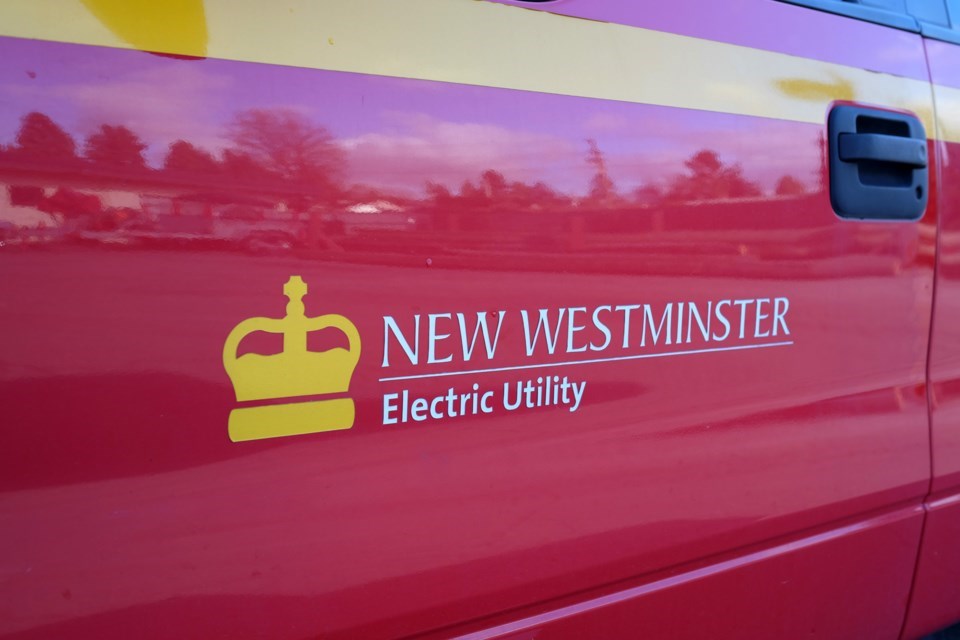New West residents and businesses will be paying more for water, sewer, solid waste and electricity services in 2023.
At its Dec. 12 meeting, city council unanimously supported a seven per cent increase for the water rate, a seven per cent increase for the sewer rate and a 14 per cent increase for the solid waste rate. In a 4-2 vote, council also supported a 2.8 per cent increase to electrical rates in 2023.
The new rates will take effect on Jan. 1, 2023. Council will continue work on the 2023 budget and five-year financial plan in the January, with decisions yet to be made on the capital and operating budgets.
While the sewer, solid waste and water rates passed without a hitch, the electrical rates sparked some discussion at the council table.
At a Nov. 28 Budget 2023 workshop, staff presented next year’s proposed utility fund budgets, which included proposed rate increases that are consistent with the city’s five-year financial plan.
At that workshop, council defeated a motion by Coun. Daniel Fontaine to freeze electricity rates at 2022 levels for the coming year. Instead, council directed staff to bring forward the necessary bylaws to amend the utility rates for 2023.
At the Dec. 12 council meeting, Fontaine said the province, through BC Hydro, is providing $100 credit to residents and $500 to businesses for electricity rates, in an effort to help British Columbians tackle inflation.
“We know that the province, anyways, is working to try to keep people whole during these very high inflationary times,” he said, “and I think our council should be doing everything that we can to do the same.”
Saying that his previous motion to freeze electrical rates at 2022 levels (by not approving the proposed 2.8 per cent increase) had been defeated at the previous meeting, Fontaine put forward another motion for council’s consideration: that the city to temporarily halt the 3.5 per cent climate tax levy, which is collected from electric utility customers, as a way of providing inflation relief to New West residents and businesses.
Mayor Patrick Johnstone initially questioned if the new motion was a “motion to reconsider” the motion Fontaine had put forward at the Nov. 28 workshop. After some discussion, he agreed Fontaine was putting forward a different motion.
In a 4-2 vote, council opposed the motion to temporarily halt the 3.5 per cent climate tax levy. New West Progressive councillors Fontaine and Paul Minhas supported the motion, while Community First New West councillors Ruby Campbell, Tasha Henderson, Nadine Nakagawa and mayor Johnstone opposed the motion. (Coun. Jaimie McEvoy did not attend the Dec. 12 meeting.)
Addressing climate action
Campbell said some people are struggling, and that’s something she doesn’t take lightly, but people will continue to struggle in the years ahead because of the climate crisis.
“Yes, people are struggling now. But I anticipate it's only going to become worse. Well, it's not just me; scientists know that it's only going to become worse,” Campbell said. “So I am not supportive of this. I feel we need to think about the future, and not just our current situation.”
In 2020, the city introduced a new climate action levy in the electric utility, which will be used to fund projects and initiatives that align with the city's environmental strategies and goals.
Henderson said the city has limited opportunities to build reserves for larger-scale projects of any sort, particularly around climate action. She said the city needs “visionary long-term planning” that extends past a council term.
“I think this one-year fee reduction is the opposite of that long-term thinking,” she said. “And I can't personally support actions that will take away from our opportunities to do long-term planning around climate action.”
Coun. Nadine Nakagawa said she shares concerns about people who are struggling.
“Rather than just blanketing the city, I would prefer that we actually targeted directly at people who need some sorts of relief on utilities and fees,” she said. “So, as I stated in the previous discussion on this, I would like to see our financial department to report back on opportunities for targeted relief on utility costs.”
Nakagawa said the costs of addressing the climate crisis are going to be “astronomical” and the city needs to build up a climate fund.
“If we don't start building up our reserves right now, we will be in a position of having to raise emergency funds to address the immediate needs of our community for both mitigation and adaptation,” she said.
Fontaine said the city recently put $26 million into the climate action reserve fund from carbon credits that were primarily driven through the electric utility. (In July, the City of New Westminster announced it had sold low-carbon fuel credits by providing electricity to propel the SkyTrain and to charge electric vehicles.)
“In a year when people are struggling with inflation, all I'm asking with this motion is we do what the NDP are doing in Victoria. They are handing cheques to people for $100 for individuals and $500 for businesses, and I think it would go a long way if we followed that lead and we provided the same type of relief to New Westminster utility ratepayers,” he said.
Johnstone noted that electric utility customers will be providing residents and businesses with the same credits BC Hydro is providing to its customers. He opposed the motion, saying the city needs to put money into reserves in order to address its infrastructure deficit.
“Willy nilly decisions to reduce rates at this late stage, after this council has already agreed on the rates for next year and asked staff put together bylaws for them, is not a responsible way to govern either the utility or the city,” he said.



